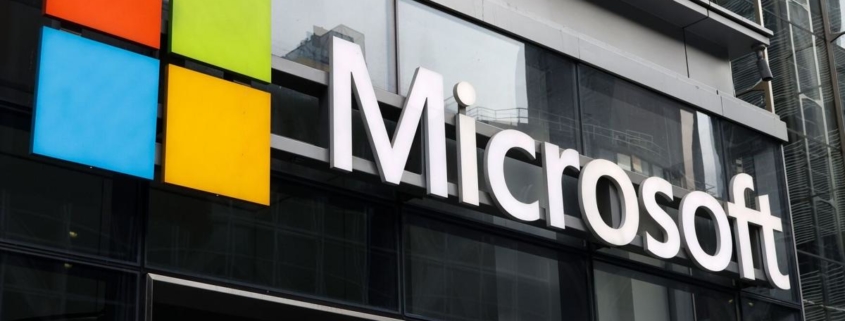Tag Archive for: senior
Finland sees fourfold spike in ransomware attacks since joining NATO, senior cyber official says
/in Internet Security
Ransomware attacks targeting Finnish organizations have increased four-fold since the Nordic country began the process of joining NATO last year, according to a senior official.
In an interview with Recorded Future News on Thursday, Sauli Pahlman, the deputy director general for Finland’s National Cyber Security Centre (NCSC), cautioned that “correlation doesn’t equal causality,” but said he believed the surge in cases was linked to geopolitics.
Finland, which had historically declared itself to be a non-aligned country – in part due to troubled relations with Russia, with whom it shares a 830-mile border – applied to join NATO following the invasion of Ukraine.
In June, the country expelled nine diplomats from the Russian embassy in Helsinki and accused them of undertaking intelligence missions in contravention of the Vienna convention on diplomatic relations.
The expulsion of alleged Russian intelligence officers throughout Europe prompted the head of Finnish Security Intelligence Service (SUPO) to warn last year that Russia would “turn to the cyber environment” for espionage due to challenges impacting its human intelligence work.
At the time, SUPO’s director Antti Pelttari said that the agency considered it “unlikely that any cyberattack will paralyze critical infrastructure [in Finland] in the near future.”
NCSC’s Pahlman echoed this position, telling Recorded Future News he didn’t “consider it very likely that we [will] really see a cyber incident in Finland that really closes down something that’s critical for society — food, electricity, water — on a wide scale.”
But the NCSC still issued a public alert last September, elevating the cyber threat level to encourage organizations and the public to be aware of the potential for disruptive incidents. The threat level “continues to be elevated as we speak, the situation hasn’t changed,” said Pahlman.
The number of cyber incidents which Pahlman said were clearly perpetrated by state-sponsored actors “has not, at least up to today, increased in a way that I could say that there has really been a step-up. [But] what we can certainly say is that the ransomware cases — which tend to have much…
Cloud security tops 2023 cyber risks, according to UK senior executives
/in Internet Security
Cloud related risks top the list of cyber security concerns that UK senior executives say will have a significant impact on their organisations in 2023, according to PwC’s annual Digital Trust Insights.
The research is based on an extensive survey of global and UK business leaders looking at key cyber security trends for the year ahead. Some 39% of UK respondents say they expect cloud-based risks to significantly affect their organisation in 2023, more so than cyber risks from other sources such as laptop/desktop endpoints, web applications and software supply chain.
A third (33%) of respondents expect attacks against cloud management interfaces to increase significantly in 2023, while 20% say they expect attacks on Industrial Internet of Things (IIoT) and operational technology (OT) to significantly increase in the next 12 months.
However, long-standing and familiar cyber risks remain on the horizon in 2023, highlighting the challenge facing businesses. Just over a quarter (27%) of UK organisations say they expect business email compromise and ‘hack and leak’ attacks to significantly increase in 2023, and 24% say they expect ransomware attacks to significantly increase. Nevertheless, cyber security budgets will rise for many organisations in 2023, with 59% of UK respondents saying they expect their budgets to increase.
Richard Horne, cyber security chair, PwC UK said: “In part the increase in cloud-based threats is a result of some of the potential cyber risks associated with digital transformation. An overwhelming majority (90%) of UK senior executives in our survey ranked the ‘increased exposure to cyber risk due to accelerating digital transformation’ as the biggest cyber security challenge their organisation has experienced since 2020.
“However, these digital transformation efforts – which include initiatives such as migration to cloud, moving to ecommerce and digital service delivery methods, the use of digital currencies and the convergence of IT and operational technology – are critical to future-proofing businesses, unlocking value and creating sustainable growth.”
Around two-thirds of UK senior executives say they have not fully mitigated the cyber risks…
Senior politicians like Truss and Braverman are taking risks with digital security
/in Computer Security
Tony Blair didn’t get his first mobile phone until after he’d left office in 2007. A year later, on becoming president, Barack Obama was asked to give up his Blackberry and refused. Hillary Clinton, as is rather well known, occasionally used her own private email account.
While he was prime minister, Boris Johnson carried on using the same mobile phone number he has had for decades. It was well known to practically everyone in politics and the media, who had been texting him on it for years, and had been hiding in plain sight on some corner of the internet. He is, apparently, using it again now.
Suella Braverman has not merely been emailing classified documents to people who are not cleared to see them, via her private Gmail account. She has also been accidentally emailing said documents to people she did not even intend to send them to, and then sending a follow-up email asking them to “delete and ignore”.



